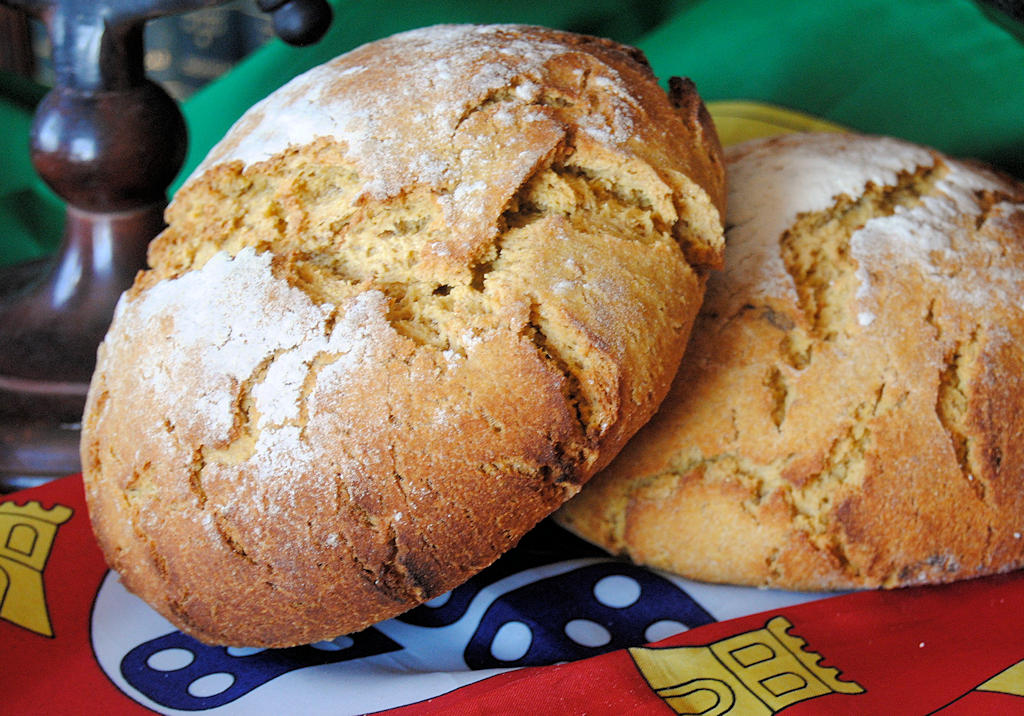The main ingredient in broa de milho is cornmeal, which gives the bread its characteristic flavor and texture. The cornmeal used in traditional recipes is typically coarsely ground, preserving the natural richness and nuttiness of the corn. It is mixed with wheat flour, yeast, salt, and water to form a dough.
One unique aspect of broa de milho is the use of sourdough starter, which adds depth and complexity to the flavor. The sourdough starter, known as "massa madre", is a fermented mixture of water and flour that adds a tangy taste and contributes to the bread's dense texture.
The dough is traditionally shaped into round loaves or rustic oval shapes and scored with a cross on top. This helps the bread expand and develop its characteristic cracks during baking. The loaves are then baked in a hot oven until golden brown.
Broa de milho has a robust flavor that combines the sweetness of corn with the earthiness of wheat. The coarse cornmeal gives the bread a slightly grainy texture, while the addition of sourdough starter adds a subtle tanginess. The crust is firm and golden, while the inside is dense and moist, perfect for soaking up stews and soups.
Broa de milho holds a special place in Portuguese culture and is considered a national treasure. It is often served as an accompaniment to traditional Portuguese dishes, such as Caldo Verde, a hearty kale soup, or bacalhau, salted codfish. Its versatility allows it to be enjoyed with both savory and sweet toppings, such as cheese, butter, or honey.
Lisbon.vip Recommends
Despite the availability of commercial bread options, many Portuguese people still prefer the homemade broa de milho. The traditional process of making broa de milho requires time and attention, but it is a labor of love for those who value the rich cultural heritage of Portuguese cuisine. Local bakeries and home kitchens continue to uphold the tradition by producing broa de milho using time-honored methods.
Broa de milho is more than just a bread in Portugal; it is a symbol of culinary tradition, cultural heritage, and the enduring love for simple, wholesome flavors. Its distinct taste, dense texture, and rustic appearance make it a staple in Portuguese cuisine, cherished by generations. Whether enjoyed alongside traditional dishes or as a standalone treat, broa de milho represents the heart and soul of Portuguese bread-making, providing comfort and satisfaction with every bite.













